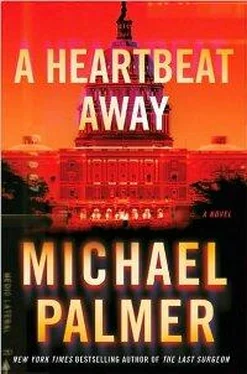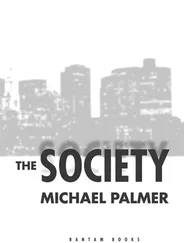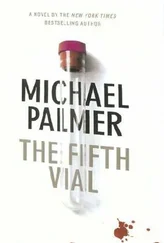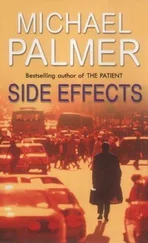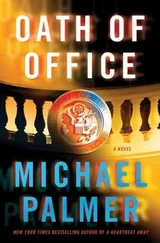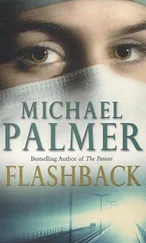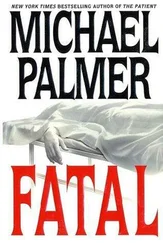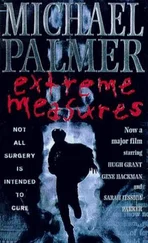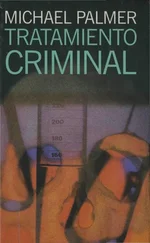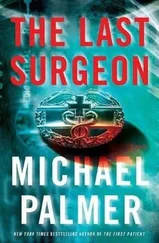It had taken several hours of painstaking effort to get his lab operational again, but things seemed to be working remarkably well. The computers had sparked back to life and were picking up where he had last left off some ten months ago. Cultures of the blood brought from the Capitol were cooking in cell lines Melvin had prepared.
WRX3883 was a hearty, rapidly multiplying microbe, and after several hours of growth, they were able to move samples of the virus from the incubator to the electron microscope’s airless vacuum chamber. Griff proceeded to collect data from those samples, which he then input into his software application. From there, he could simulate the response to variations of his antiviral treatment. The end result, if successful, would be a new approach to interfering with WRX3883 replication.
During the early days in Sylvia Chen’s lab at Columbia, flushed with a series of successes, he had nicknamed his program Orion, in honor of the legendary great hunter of Greek mythology. Griff’s Orion had only one mission: hunt WRX3883 to extinction, without harming the host. For now, Orion was computer-generated, but if Griff could map out the right RNA design, it could be synthesized in a lab or even inserted into a cell line.
For a time, the excitement surrounding his work was dizzying.
Then, the failures began.
In every computer simulation he ran, WRX3883 battled his creation with the same lethal ferocity of the gods’ assassin, Scorpius, the scorpion, who eventually felled the great hunter Orion.
This scorpion’s lethal weapon: mutation.
WRX3883 was as quick as it was deadly. From a germ with effects limited to the deep central nervous system, suddenly there were computer indications of disastrous damage to tissue cultures grown from blood and gastrointestinal cells as well.
Again and again, Griff’s attacking protein seemed close to working. But in this battle, Orion’s near successes were still the equivalent of abject failure. The missing link, he knew, might be something as close as a minor RNA sequence modification, or something as distant as Orion, the constellation. No matter how close the breakthrough was, according to Griff’s models the result for the infected host remained the same—death.
Another stroll through the Kitchen, and he shifted his attention from the television screen of magnified WRX virus to Sylvia Chen’s laboratory notebooks, which were laid open and stacked atop one another on the stainless steel table beside the electron microscope. He flipped through pages of notes dictated into a computer program, or written in his former boss’s small, irregular hand, but as with the images generated by the microscope, exhaustion blurred the words. He’d come to the last of the three-ring binders, and was flipping through old lab notes searching for anything of interest to his work, when one report in particular caught his breath.
The report, titled simply “The Macaque Incident,” and dated a year and a half ago, detailed the most horrific account of animal testing Griff had ever seen. A simple protocol mistake by an animal keeper in Hell’s Kitchen—Sylvia Chen’s animal lab—infected thirty Rhesus monkeys with exceedingly high doses of WRX3883. Their decline, stunningly rapid, was captured on video for later study.
Chen’s documented account was disturbingly graphic, and evoked in Griff memories he had long wished to forget. It was his policy never to go near the animal lab unless he positively had to. But the cries for help from the caretaker had brought him down there. He tried to help the animals with a variety of antiviral drugs, and even one of his more advanced serums. But there was nothing he, or anybody, could do to save them. He could still hear screams of dying monkeys, some so sick that they used their rapier-like nails to slice their own bodies to ribbons, trying to scratch the virus out.
The disastrous Macaque Incident notwithstanding, Sylvia Chen remained convinced that her work with primates held the answer to terminating a WRX3883 infection before the microbes could mutate. Griff constantly considered incorporating elements of Chen’s research findings with his own, but could not bring himself even to appear to endorse her methods. Now, as much as it sickened him to read through her notes, he knew they might contain useful nuggets that could help uncover Orion’s missing piece.
Griff had read a survey in which 90 percent of the general public accepted the use of animals in medical research, so long as that research involved serious medical conditions, and all alternatives had been fully considered before sacrificing the experimental subjects. He argued that WRX3883 was a weapon, without any true medical gain to be had. He also pushed his own methods as a viable alternative.
Chen’s only concession was to keep him employed and provide him a platform for proving or disproving his hypotheses.
Forbush entered the lab and set a box of pipettes on the counter by the stainless steel sink.
“After Sylvia vanished, the FBI wanted to take those notebooks,” he said. “Two guys who looked like Michael Douglas and Harvey Keitel searched her lab and office. They hated the biosuits and ended up knocking over just about everything that wasn’t screwed down. When I told them they couldn’t take anything out of here, they were really upset. They read the notes in Sylvia’s office, but I don’t think they got much out of them. How about you?”
“There are things here and there that might be useful, but I just don’t know if I want to study them. It makes me sick to have to relive that monkey disaster.”
“Now that you mention it, my friend, you really do look a little sick. Can you take a break?”
Griff rejected the suggestion, even though his stomach felt hollow and his body as though Novocain had been pumped in as a replacement for his blood.
“We’ve got to push ahead, Melvin,” he said, “at least for a few more hours. Then maybe I’ll take a short break.”
“Good idea. When you walk, you’re starting to look like Boris Karloff in Frankenstein .”
Arms out front, Forbush dramatized the remark.
“Thanks, Melvin,” Griff said. “You know, I’ve been wondering. What if Sylvia had the wrong animals?”
“How do you mean?”
“She tested on Rhesus monkeys, but never on chimpanzees, partly because she knew I would have drawn the line at that and left the project. Their immune system is closest to our own. I wonder now if that would have made a difference.”
“I can get the chimps,” Forbush said. “Just say the word. It may take a little while, though.”
The notion of working on chimpanzees soured Griff’s stomach. Even assuming Melvin could procure the animals reasonably quickly, Griff would have to abandon Orion to chase another path—one that could prove costly in terms of time, just to satisfy some SWAT—a Scientific Wild Ass Theory.
Would it be worth it?
DAY 5
11:00 P.M. (EST)
The alley behind the Sechuan Hop smelled of rotting vegetables. Frozen towers of cardboard boxes, stacked taller than Angie stood, abutted two Dumpsters overflowing with garbage and refuse. Dense overcast and the buildings themselves obscured any moonlight, and steel fire escapes protruding from the buildings made the narrow passageway seem even more foreboding.
Angie pulled the red knit hat she had bought from a street vendor down over her ears to shield them from a biting wind. At precisely eleven o’clock, as instructed, she knocked three times on the cold steel of the restaurant’s alleyway entrance. On the second knock, the door budged. On the third, it swung open several inches, grating on rusted hinges. Angie took a cautious step inside and glanced about the basement, which was minimally lit from a source ahead and to her right. No one was there to greet her. She was unwilling to close the door any further.
Читать дальше
